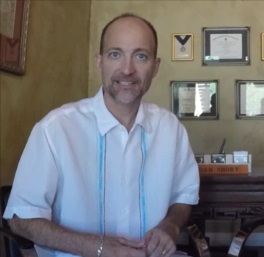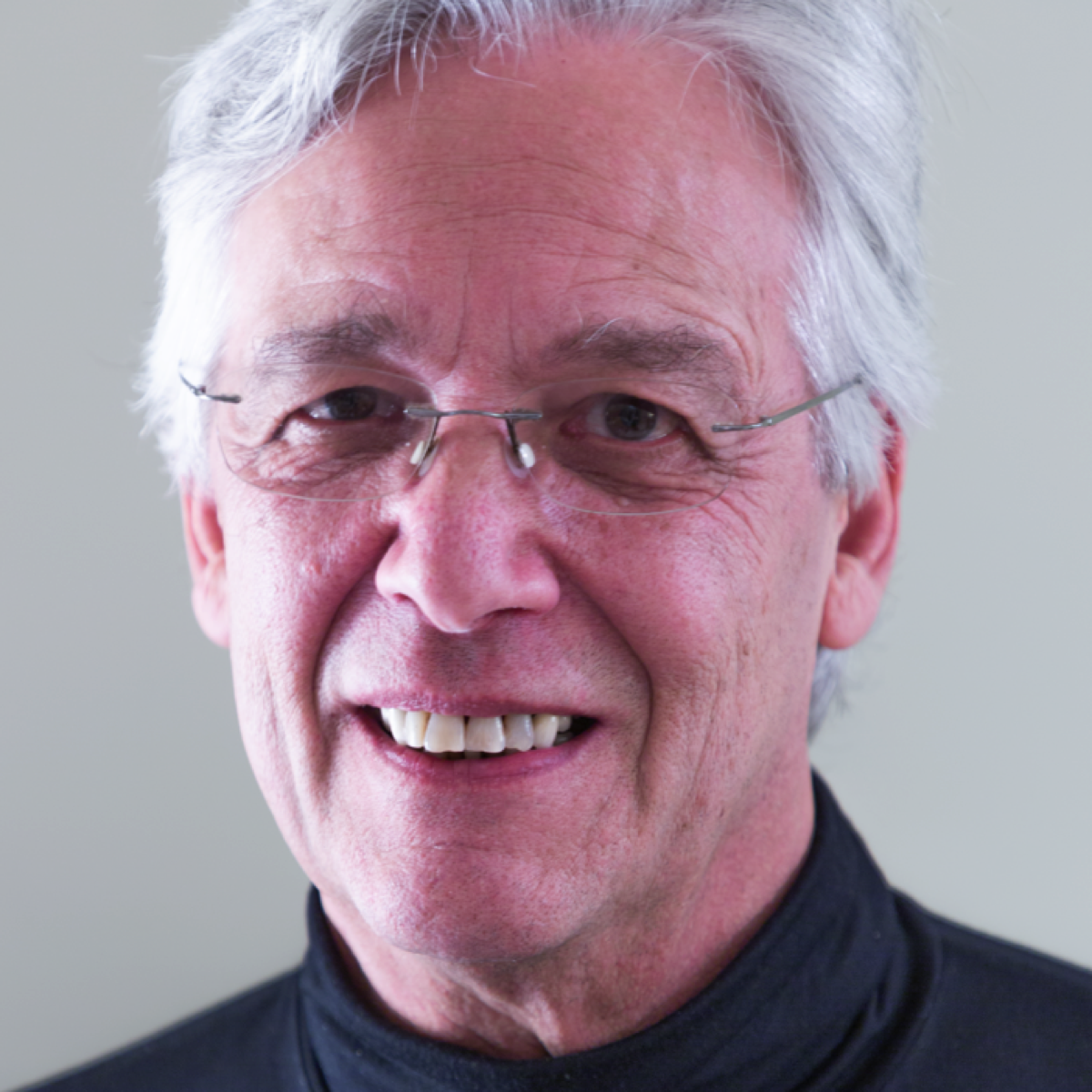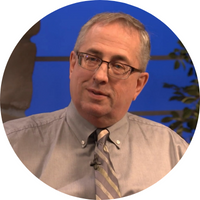Join us for our
2023 Annual Conference
featuring
Dan Short, Irving Kirsch,
and Dave Gaffney
December 9-10, 2023
“Hypnotic Suggestion and Positive Expectancies”
This year’s North Carolina Society of Clinical Hypnosis 54th Annual Conference offers two independent days of cutting-edge training related to the theme of “Hypnotic Suggestion & Positive Expectancies”. This year, by popular demand, we are bringing back some of the best speakers and leaders in the field from the Hypnotic Idea Exchange to help you do the critical work of shaping positive expectancies for your client in hypnotically informed ways.
On Saturday, December 9th, Dr. Dan Short will offer “What is the Aim of Hypnosis: Compliance or Intelligence” which he describes as follows:
In traditional hypnosis, suggestion has often been utilized for suggestion’s sake, with procedures such as trance induction or trance deepening used to increase responsiveness to suggestion. The oldest hypnosis theories attribute positive clinical outcomes to compliance with suggestion that is aimed at the removal of “symptomatic” behavior. This all changed when Milton Erickson framed therapy as a problem-solving endeavor and hypnotherapy as a special context for learning and self-organized change. This modern model assumes that that the evocation of unconscious intelligence is more essential to adaptation and overall wellbeing than compliance. Since the turn of this century, the broader field of psychology has begun to emphasize the importance of self-organizing change for neurological health (neurogenesis) as well as emotional thriving (positive psychology). In this workshop, Dr. Short will share with participants important discoveries from neuro-science, cognitive psychology, the positive psychology movement, as well as clinical discoveries by Ericksonian hypnotherapists, and show how to apply this knowledge to improve therapeutic outcomes.
As a special treat, Dr. Short will facilitate a 90-minute keynote by Dr. Irving Kirsch on “Suggestion vs. Medication in the Treatment of Depression” which will explore Dr. Kirsch’s extensive research on the benefits and risks of antidepressants vs. alternative treatments of depression.
On Sunday, December 10th, David Gaffney, LMSW, BCCH, EFT-Adv, will offer “Going Faster and Deeper: Inductions for when you don’t have time for an Induction” which he describes as follows:
Practitioners in dentistry, procedural settings, and Integrated mental health/primary care positions struggle with hypnosis due to time limitations—they do not have the luxury of 15-30 minute inductions. This practical hands-on workshop will equip practitioners with brief inductions designed to trigger the deeper hypnotic states needed for procedural intervention, Hypno-analgesia, and Hypno-anesthesia.
The first 1/2 will include instruction and practice in using the Elman induction: a specific, proven method for rapidly creating a deep trance state:
1. We first disassemble and then reassemble the Elman induction into a brief (5-10 minutes), powerful induction.
The second 1/2 will be dedicated to learning multiple methods and protocols for eliciting deep rapid trances (trances taking 5 minutes or less):
1. Following Clark Hull's maxim—"anything that assumes trance, causes trance"—participants then practice a mix of verbal and kinesthetic rapid inductions (5 minutes or less) which utilize deep hypnotic phenomena to trigger trance states.
2. Participants will leave with skill in using rapid inductions to quickly prepare their clients for procedural or therapy interventions.
Educational Objectives
After the first day of the workshop, participants will be able to:
1. At the completion of the language of unconscious intelligence, introductory module, participants will creatively apply hypnotic techniques stimulating unconscious intelligence during self-governed practice—demonstrating the target skills during subsequent group discussions.
2. At the completion of the methods of unconscious process work module, participants will state the primary findings of at least three studies of neurological wellbeing, emotional regulation, and cognitive thriving.
3. At the completion of the workshop, participants will create a list (at least 3-bullet points) that highlights and analyzes the benefits of unconscious thought/emotional processing and how it enhances creativity, self-determination, and the exercise of choice.
4. At the end of the keynote with Irving Kirsch, PhD, participants will be able to describe the results of a recent patient-level meta-analysis of all of the FDA antidepressant data, the magnitude of the difference between the antidepressant effects of medication and placebos, the clinical significance of those differences, and the long-term effectiveness of psychotherapy and hypnosis for depression.
After the second day of the workshop, participants will be able to:
1. Demonstrate using the Elman induction to facilitate trance in under 10 minutes.
2. Identify how to use each step of the Elman Induction as either a self-standing induction or a deepener for prior steps.
3. Utilize the Elman induction to reach deep trance according to the Aarons Scale.
4. Explain the use of hypnotic phenomena in eliciting rapid trance.
5. Demonstrate the use of catalepsy to elicit trance.
6. Model a least 1 verbal and one kinesthetic rapid induction appropriate for use with Veterans in the clinical or procedural setting.
7. Discuss application of these techniques across settings.
About the Presenters
David Gaffney, LCSW, BCCH, EFT-Adv, has 40+ years of hypnosis experience and has been using clinical hypnosis since 1983. He has been a board certified in clinical hypnosis since the early 1990’s and has been teaching hypnosis and NLP since that time. Currently David is a Clinical Social Worker at the Aleda E Lutz VAMC in Saginaw, Michigan, where he provides psychotherapy, hypnotherapy, biofeedback and mindfulness training in the MH Integrated Pain Clinic. Additionally, he runs a private practice specializing in mind-body therapies integrated with psychotherapy. He has served on the board for the MidWest Society of Behavioral Medicine and Biofeedback. David currently serves as VA Subject Matter Expert for Hypnosis and Guided Imagery and works for the VA IHCC (Integrative Health Coordinating Center) as the National Champion for Hypnosis and Guided Imagery.
Irving Kirsch, PhD, is Associate Director of the Program in Placebo Studies and the Therapeutic Relationship, and a lecturer on medicine at the Harvard Medical School (Beth Israel Deaconess Medical Center). He is also Emeritus Professor of Psychology at the University of Hull (UK) and the University of Connecticut (USA). He has published 10 books, more than 300 scientific journal articles and 40 book chapters on placebo effects, antidepressant medication, hypnosis, and suggestion. He originated the concept of response expectancy. Kirsch’s 2002 meta-analysis on the efficacy of antidepressants influenced official guidelines for the treatment of depression in the United Kingdom. His 2008 meta-analysis was covered extensively in the international media and listed by the British Psychological Society as one of the “10 most controversial psychology studies ever published.” In 2022, he co-authored a patient level meta-analysis of all of the clinical trial data sent to the FDA for approved antidepressants. His book, The Emperor’s New Drugs: Exploding the Antidepressant Myth, has been published in English, French, Italian, Japanese, Turkish, and Polish, and was shortlisted for the prestigious Mind Book of the Year award. It was the topic of 60 Minutes segment on CBS and a 5-page cover story in Newsweek. In 2015, the University of Basel (Switzerland) awarded Irving Kirsch an Honorary Doctorate in Psychology. In 2019, the Society for Clinical and Experimental Hypnosis honoured him with their “Living Human Treasure Award.” In 2023, the Society for Interdisciplinary Placebo Studies honoured him with their Lifetime Achievement Award.
Dan Short, Ph.D., is a licensed Clinical Psychologist who serves as Director for the Milton H. Erickson Institute of Phoenix, adjunct faculty for the Milton H. Erickson Foundation Intensive training program, adjunct faculty for Sonoran University of Health Sciences, as well as providing private practice care. Dr. Short has published 4 books and over 60 journal articles or chapters in books. Dr. Short’s research interests have focused on Ericksonian hypnosis resulting in a research-based treatment manual for Ericksonian therapy (ET), which is used by training institutes around the world.
On Saturday, December 9th, Dr. Dan Short will offer “What is the Aim of Hypnosis: Compliance or Intelligence” which he describes as follows:
In traditional hypnosis, suggestion has often been utilized for suggestion’s sake, with procedures such as trance induction or trance deepening used to increase responsiveness to suggestion. The oldest hypnosis theories attribute positive clinical outcomes to compliance with suggestion that is aimed at the removal of “symptomatic” behavior. This all changed when Milton Erickson framed therapy as a problem-solving endeavor and hypnotherapy as a special context for learning and self-organized change. This modern model assumes that that the evocation of unconscious intelligence is more essential to adaptation and overall wellbeing than compliance. Since the turn of this century, the broader field of psychology has begun to emphasize the importance of self-organizing change for neurological health (neurogenesis) as well as emotional thriving (positive psychology). In this workshop, Dr. Short will share with participants important discoveries from neuro-science, cognitive psychology, the positive psychology movement, as well as clinical discoveries by Ericksonian hypnotherapists, and show how to apply this knowledge to improve therapeutic outcomes.
As a special treat, Dr. Short will facilitate a 90-minute keynote by Dr. Irving Kirsch on “Suggestion vs. Medication in the Treatment of Depression” which will explore Dr. Kirsch’s extensive research on the benefits and risks of antidepressants vs. alternative treatments of depression.
On Sunday, December 10th, David Gaffney, LMSW, BCCH, EFT-Adv, will offer “Going Faster and Deeper: Inductions for when you don’t have time for an Induction” which he describes as follows:
Practitioners in dentistry, procedural settings, and Integrated mental health/primary care positions struggle with hypnosis due to time limitations—they do not have the luxury of 15-30 minute inductions. This practical hands-on workshop will equip practitioners with brief inductions designed to trigger the deeper hypnotic states needed for procedural intervention, Hypno-analgesia, and Hypno-anesthesia.
The first 1/2 will include instruction and practice in using the Elman induction: a specific, proven method for rapidly creating a deep trance state:
1. We first disassemble and then reassemble the Elman induction into a brief (5-10 minutes), powerful induction.
The second 1/2 will be dedicated to learning multiple methods and protocols for eliciting deep rapid trances (trances taking 5 minutes or less):
1. Following Clark Hull's maxim—"anything that assumes trance, causes trance"—participants then practice a mix of verbal and kinesthetic rapid inductions (5 minutes or less) which utilize deep hypnotic phenomena to trigger trance states.
2. Participants will leave with skill in using rapid inductions to quickly prepare their clients for procedural or therapy interventions.
Educational Objectives
After the first day of the workshop, participants will be able to:
1. At the completion of the language of unconscious intelligence, introductory module, participants will creatively apply hypnotic techniques stimulating unconscious intelligence during self-governed practice—demonstrating the target skills during subsequent group discussions.
2. At the completion of the methods of unconscious process work module, participants will state the primary findings of at least three studies of neurological wellbeing, emotional regulation, and cognitive thriving.
3. At the completion of the workshop, participants will create a list (at least 3-bullet points) that highlights and analyzes the benefits of unconscious thought/emotional processing and how it enhances creativity, self-determination, and the exercise of choice.
4. At the end of the keynote with Irving Kirsch, PhD, participants will be able to describe the results of a recent patient-level meta-analysis of all of the FDA antidepressant data, the magnitude of the difference between the antidepressant effects of medication and placebos, the clinical significance of those differences, and the long-term effectiveness of psychotherapy and hypnosis for depression.
After the second day of the workshop, participants will be able to:
1. Demonstrate using the Elman induction to facilitate trance in under 10 minutes.
2. Identify how to use each step of the Elman Induction as either a self-standing induction or a deepener for prior steps.
3. Utilize the Elman induction to reach deep trance according to the Aarons Scale.
4. Explain the use of hypnotic phenomena in eliciting rapid trance.
5. Demonstrate the use of catalepsy to elicit trance.
6. Model a least 1 verbal and one kinesthetic rapid induction appropriate for use with Veterans in the clinical or procedural setting.
7. Discuss application of these techniques across settings.
About the Presenters
David Gaffney, LCSW, BCCH, EFT-Adv, has 40+ years of hypnosis experience and has been using clinical hypnosis since 1983. He has been a board certified in clinical hypnosis since the early 1990’s and has been teaching hypnosis and NLP since that time. Currently David is a Clinical Social Worker at the Aleda E Lutz VAMC in Saginaw, Michigan, where he provides psychotherapy, hypnotherapy, biofeedback and mindfulness training in the MH Integrated Pain Clinic. Additionally, he runs a private practice specializing in mind-body therapies integrated with psychotherapy. He has served on the board for the MidWest Society of Behavioral Medicine and Biofeedback. David currently serves as VA Subject Matter Expert for Hypnosis and Guided Imagery and works for the VA IHCC (Integrative Health Coordinating Center) as the National Champion for Hypnosis and Guided Imagery.
Irving Kirsch, PhD, is Associate Director of the Program in Placebo Studies and the Therapeutic Relationship, and a lecturer on medicine at the Harvard Medical School (Beth Israel Deaconess Medical Center). He is also Emeritus Professor of Psychology at the University of Hull (UK) and the University of Connecticut (USA). He has published 10 books, more than 300 scientific journal articles and 40 book chapters on placebo effects, antidepressant medication, hypnosis, and suggestion. He originated the concept of response expectancy. Kirsch’s 2002 meta-analysis on the efficacy of antidepressants influenced official guidelines for the treatment of depression in the United Kingdom. His 2008 meta-analysis was covered extensively in the international media and listed by the British Psychological Society as one of the “10 most controversial psychology studies ever published.” In 2022, he co-authored a patient level meta-analysis of all of the clinical trial data sent to the FDA for approved antidepressants. His book, The Emperor’s New Drugs: Exploding the Antidepressant Myth, has been published in English, French, Italian, Japanese, Turkish, and Polish, and was shortlisted for the prestigious Mind Book of the Year award. It was the topic of 60 Minutes segment on CBS and a 5-page cover story in Newsweek. In 2015, the University of Basel (Switzerland) awarded Irving Kirsch an Honorary Doctorate in Psychology. In 2019, the Society for Clinical and Experimental Hypnosis honoured him with their “Living Human Treasure Award.” In 2023, the Society for Interdisciplinary Placebo Studies honoured him with their Lifetime Achievement Award.
Dan Short, Ph.D., is a licensed Clinical Psychologist who serves as Director for the Milton H. Erickson Institute of Phoenix, adjunct faculty for the Milton H. Erickson Foundation Intensive training program, adjunct faculty for Sonoran University of Health Sciences, as well as providing private practice care. Dr. Short has published 4 books and over 60 journal articles or chapters in books. Dr. Short’s research interests have focused on Ericksonian hypnosis resulting in a research-based treatment manual for Ericksonian therapy (ET), which is used by training institutes around the world.



Disability Accommodations
For additional information or disability accommodations, please contact John Hall, PhD, at 704.258.5553 (text or voice)
For additional information or disability accommodations, please contact John Hall, PhD, at 704.258.5553 (text or voice)
Workshop Schedule
Day 1
9:00-10:45 am
Introduction to the concepts of self-organizing change and unconscious process work (also known as the adaptive experiential theory of hypnosis)
10:45-11:00 am
Break
11:00-12:30 pm
Irving Kirsch, PhD, keynote with 60 minutes of presentation followed by 30-minute discussion period.
12:30-1:30 pm
Lunch
1:30-3:00 pm
Stimulating unconscious intelligence using permissive suggestion & prediction, mental contrasting, reimagining, and incubated cognition.
3:00-3:15 pm
Break
3:15-4:30 pm
Experiential exercises, possible demonstration followed by Q&A and evaluation.
Day 2
9:00-9:45 am
Introduction to rapid inductions, depth assessment, comparison to traditional induction, and the role of deepeners in rapid inductions.
9:45-10:30 am
Introduction to the Elman Induction and demonstration.
10:30-10:45 am
Break
10:45-12:15 pm
Breakdown of induction and practice of each phase of Elman induction, followed by debriefing
12:15-1:15 pm Lunch
1:15-1:45 pm Lecture introducing kinesthetic paths to faster, deeper inductions
1:45-2:45 pm Demonstration of catalepsy induction and practice
2:45-3:00 pm Break
3:00-4:15 pm 6 rapid inductions: demo and small group practice
4:15-4:30 pm Q&A and evaluations
9:00-10:45 am
Introduction to the concepts of self-organizing change and unconscious process work (also known as the adaptive experiential theory of hypnosis)
10:45-11:00 am
Break
11:00-12:30 pm
Irving Kirsch, PhD, keynote with 60 minutes of presentation followed by 30-minute discussion period.
12:30-1:30 pm
Lunch
1:30-3:00 pm
Stimulating unconscious intelligence using permissive suggestion & prediction, mental contrasting, reimagining, and incubated cognition.
3:00-3:15 pm
Break
3:15-4:30 pm
Experiential exercises, possible demonstration followed by Q&A and evaluation.
Day 2
9:00-9:45 am
Introduction to rapid inductions, depth assessment, comparison to traditional induction, and the role of deepeners in rapid inductions.
9:45-10:30 am
Introduction to the Elman Induction and demonstration.
10:30-10:45 am
Break
10:45-12:15 pm
Breakdown of induction and practice of each phase of Elman induction, followed by debriefing
12:15-1:15 pm Lunch
1:15-1:45 pm Lecture introducing kinesthetic paths to faster, deeper inductions
1:45-2:45 pm Demonstration of catalepsy induction and practice
2:45-3:00 pm Break
3:00-4:15 pm 6 rapid inductions: demo and small group practice
4:15-4:30 pm Q&A and evaluations